For 165 days, Jess Rowe was among the most isolated people on the planet. Alongside her teammate Miriam Payne in a nine-metre boat between Peru and Australia, they saw just six ships and no other human faces for more than 100 days — yet millions followed their journey online.
The British pair arrived in Cairns, Queensland, on Saturday, October 18 as the Seas the Day Ocean Rowing Team, becoming the first women’s team ever to row the full Pacific Ocean non-stop and unsupported — a record that places them among the world’s elite ocean rowers.
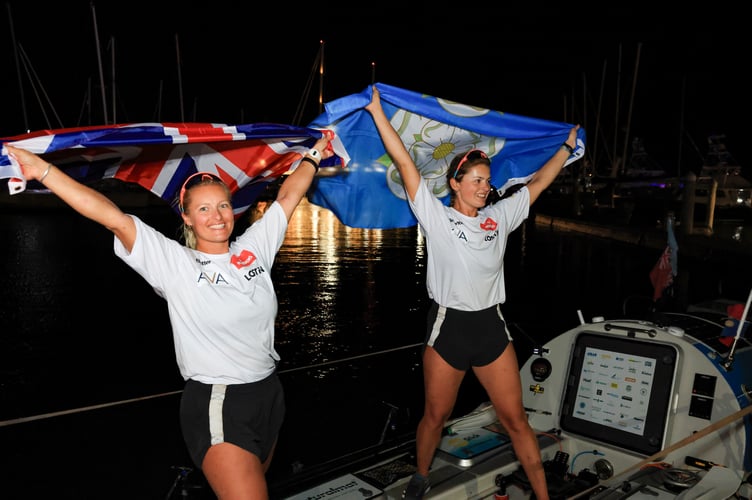
“We still can’t quite believe it’s real. After so many days at sea, to finally see land, and the welcome we’ve had here in Cairns, is beyond words,” said Jess.
“Those final few hours were brutal. The wind was pushing us off the channel, and we honestly thought we weren’t going to make it. We ended up outside the channel and thought we might have to swim to shore. To finally be here, after talking about it for so long, just feels incredible.”
Their 8,000-mile voyage from Lima in Peru to Australia spanned one-third of the planet.
“I haven’t stopped yet,” she said.
The pair met during the 2022 World’s Toughest Row, when Miriam was attempting a solo crossing and Jess was part of a four-person team.
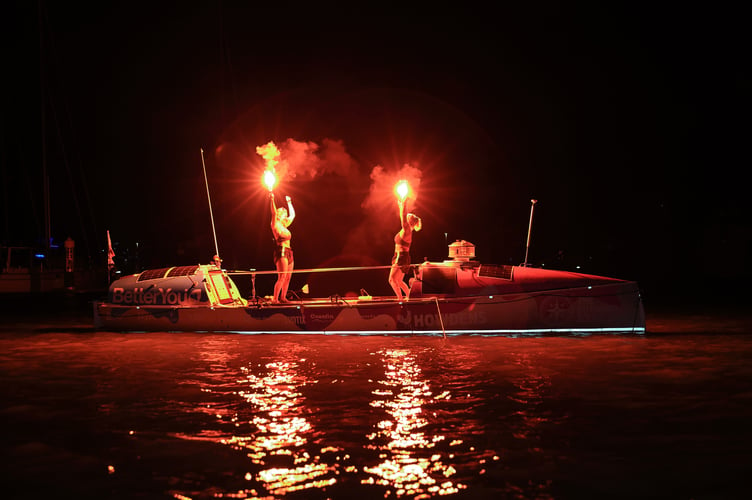
“We met and got on so well we decided to take on an even bigger adventure,” said Jess “We didn’t have a single argument the whole way.”
Miriam said: “It was really great to have Jess as a teammate. What was great was that we worked hard together, we problem-solved together, and we were always working towards the same goals.”
But it wasn’t all plain sailing. Their first attempt at the crossing in April ended after just six days when their rudder broke, leaving them floating in international waters. They could be rescued, but the boat could not, until an adventurer on his own trip around the world took weeks out of his voyage to rescue the duo.
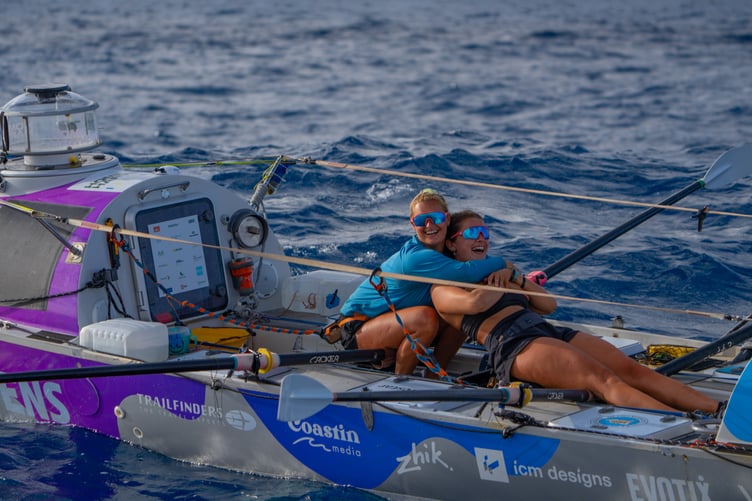
After relaunching in May, the women faced constant breakdowns. “Then came water-maker failures: burst pipes, endless repairs and some days spent hand-pumping, which was harder than the rowing. Even our emergency unit broke, leaving us to improvise a fix for the filter,” said Jess
The solution was as unexpected as it was effective: Miriam’s Calvin Klein underwear. “After nine pipe fixes, we finally discovered a bypass that kept us going.”
Their power system also failed, turning Velocity into what Jess called a “ghost ship”.
“Because of our power issues we had to hand-steer the boat, so there were many times at night when we’d fall asleep while rowing and wake up facing the completely wrong direction,” she said. With their electronics down, they relied on their flags to navigate. “Our flags became our biggest navigation tool — we got sent information on the wind direction so we could track when we were heading the right way.”
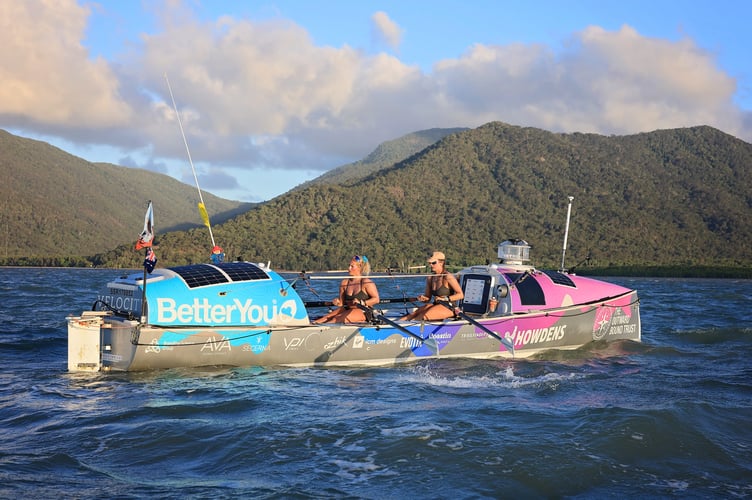
Jess and Miriam maintained a relentless schedule, rowing in two-hour shifts overnight from 6pm to 6am and together from 6am to 6pm, meaning each spent up to 15 hours a day on the oars and consuming 5,000 calories daily. Food became a lifeline. The pair had packed enough dehydrated fro 200 days and only caught one tuna the whole journey.
“Aside from that, we had no fresh food. All we talked about was food and we put our pizza orders in a week before we got to Australia,” said Jess.
They rationed between 10 and 15 litres of water a day “for food, hydration, washing, everything”. “We learnt we really don’t need a lot,” said Jess. “It makes me appreciate what it must be like not to have access to it, and how much water and energy people consume every day without even thinking about it.”
Despite months of exhaustion, breakdowns and total isolation, they never stopped smiling. “We loved every minute, and laughed and smiled the whole way. There was never a dull moment,” said Jess.
There were moments of beauty, too: “We got to see a sperm whale five metres from the boat, row under the Milky Way, and watch the phosphorescence at night,” she said.
When asked what their boat would say about them if it could talk, Jess said: “I think it would say we were mad.”
Their crossing has already raised more than £86,000 for The Outward Bound Trust — and while smaller adventures may come next, the two women have already redefined what endurance, friendship and humour look like at sea.

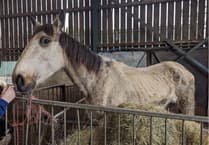


Comments
This article has no comments yet. Be the first to leave a comment.